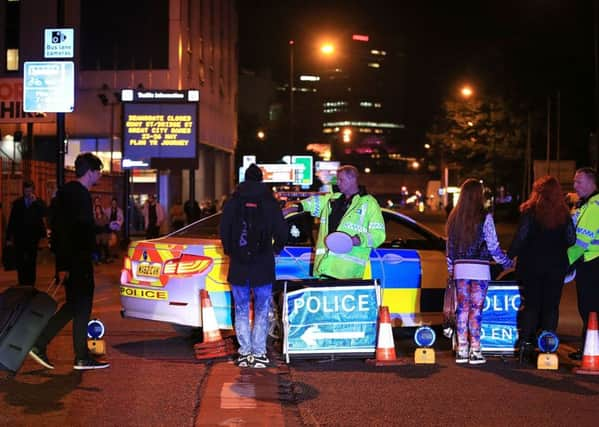Lack of information on counter-terrorism strategy '˜fuelling Muslim fears'


Although Prevent was “working well” in the region, a commission set up in the wake of last May’s Manchester Arena suicide bombing which killed 22 people said it was not getting its message across to communities where “high levels of distrust and suspicion of statutory agencies continues to exist”.
It concluded there should be an effort to move Prevent - which aims to stop people becoming terrorists or supporting terrorism - away from the police and law enforcement to wider safeguarding.
Advertisement
Hide AdAdvertisement
Hide AdThe report stated: “Most people agreed that the safeguarding principles that underpin Prevent are correct.
“However, there is a perpetuating cycle of lack of information available to communities regarding Prevent and circulation of inaccurate information. This leads to fear developing within communities.
“It was strongly felt that the positive work going on across Greater Manchester was not being appropriately disseminated into communities, where high levels of distrust and suspicion of statutory agencies continues to exist.
“It was felt that the lack of information was exploited by those with an anti-Prevent or anti-Islam agenda who maliciously miscommunicated the aims of Prevent or true nature of the issue without evidence to support their claims.
Advertisement
Hide AdAdvertisement
Hide Ad“Organisations and individuals found it difficult to challenge this narrative without statistics to refute the claims. This has perpetuated the problem, leading to the creation of suspect communities and fear of persecution amongst Muslim communities.”
The Preventing Hateful Extremism and Promoting Social Cohesion report went on: “From the people that were involved in the commission’s engagement, there was a strong feeling from the members of the Muslim community that Prevent targets Muslim communities and that this was a genuine fear felt by Greater Manchester Muslims.”
In response, the Mayor of Greater Manchester, Andy Burnham, who ordered the report, said: “If the perception of the Prevent strategy is different from the reality, then that can be exploited by those seeking to undermine any form of counter-terrorism strategy.
“Therefore we accept the need, as identified in the report, to provide more information about Prevent. Any counter-terrorism strategy needs to be localised, have community buy-in and be seen to be fair to all communities rather than appearing to target one.”
Advertisement
Hide AdAdvertisement
Hide AdMr Burnham said the Government’s Operation Dovetail pilot to transfer safeguarding responsibilities under Prevent from the police to local authorities would be rolled out across the region.
Elsewhere, the commission, chaired by Bury Council leader Rishi Shori and supported by six independent experts, found that:
- the social and economic inequalities that exist across Greater Manchester are likely to have a negative impact on social cohesion and may have an impact on risk of radicalisation.
- there remains marked differences between ethnic groups in Greater Manchester on their ability to be economically active.
Advertisement
Hide AdAdvertisement
Hide Ad- the loss of neighbourhood policing teams was consistently identified as having a substantial negative impact on community cohesion, as was the loss of resources for young people.
- there was a feeling that public consultation, including the consultation for the commission, failed to reach grassroot communities. Engagement was usually with “representatives of the community” who were often self-appointed, had their own agenda and do not necessarily represent the views of the community.
The commission, which conducted “hundreds” of face-to-face interviews, concluded: “It is clear from both the work of the commission and of previous work both in academia and social policy that there is a crucial need to allow people to voice their opinions and concerns.
“People feel ignored and silenced. There is no validation for legitimate concerns and a strong concern that expressing certain views will instantly see the person branded a racist or a terrorist. Greater Manchester now has an opportunity to lead the way in promoting social cohesion by allowing people to have difficult conversations that traditionally have been shied away from.”
Advertisement
Hide AdAdvertisement
Hide AdAs well as aiming to make the Prevent approach more transparent, Mr Burnham said Greater Manchester will develop a “whole society” approach to tackling extremism to make it easier for people to raise and report concerns - partly via an informal dedicated phoneline.
He said: “It is important to state that we know that the implementation of the actions and recommendations set out in this report will not necessarily stop further terror attacks. However, there are things that we can do, as a society, that can reduce the risk and assist our counter-terror and security agencies.